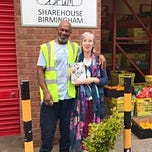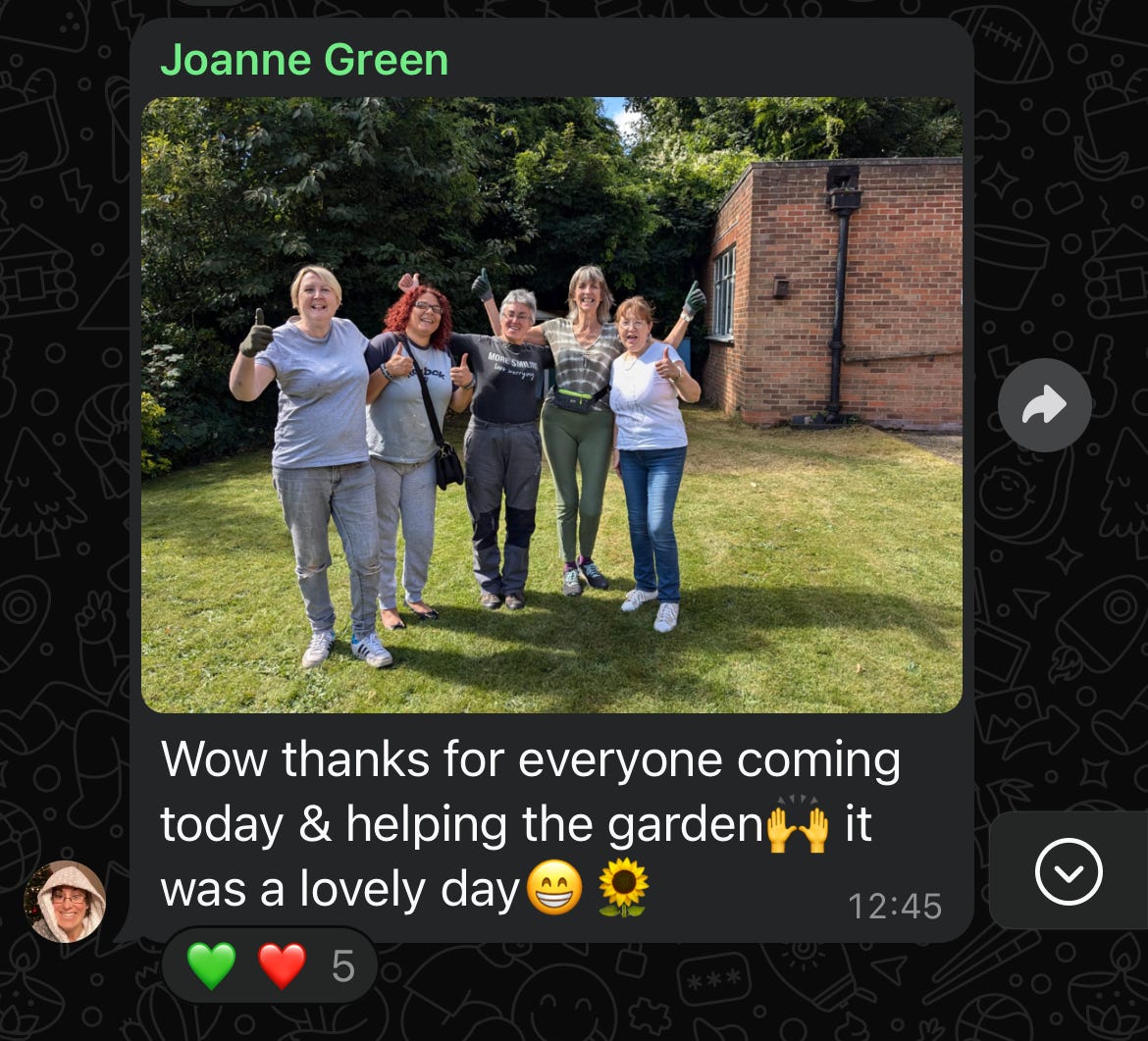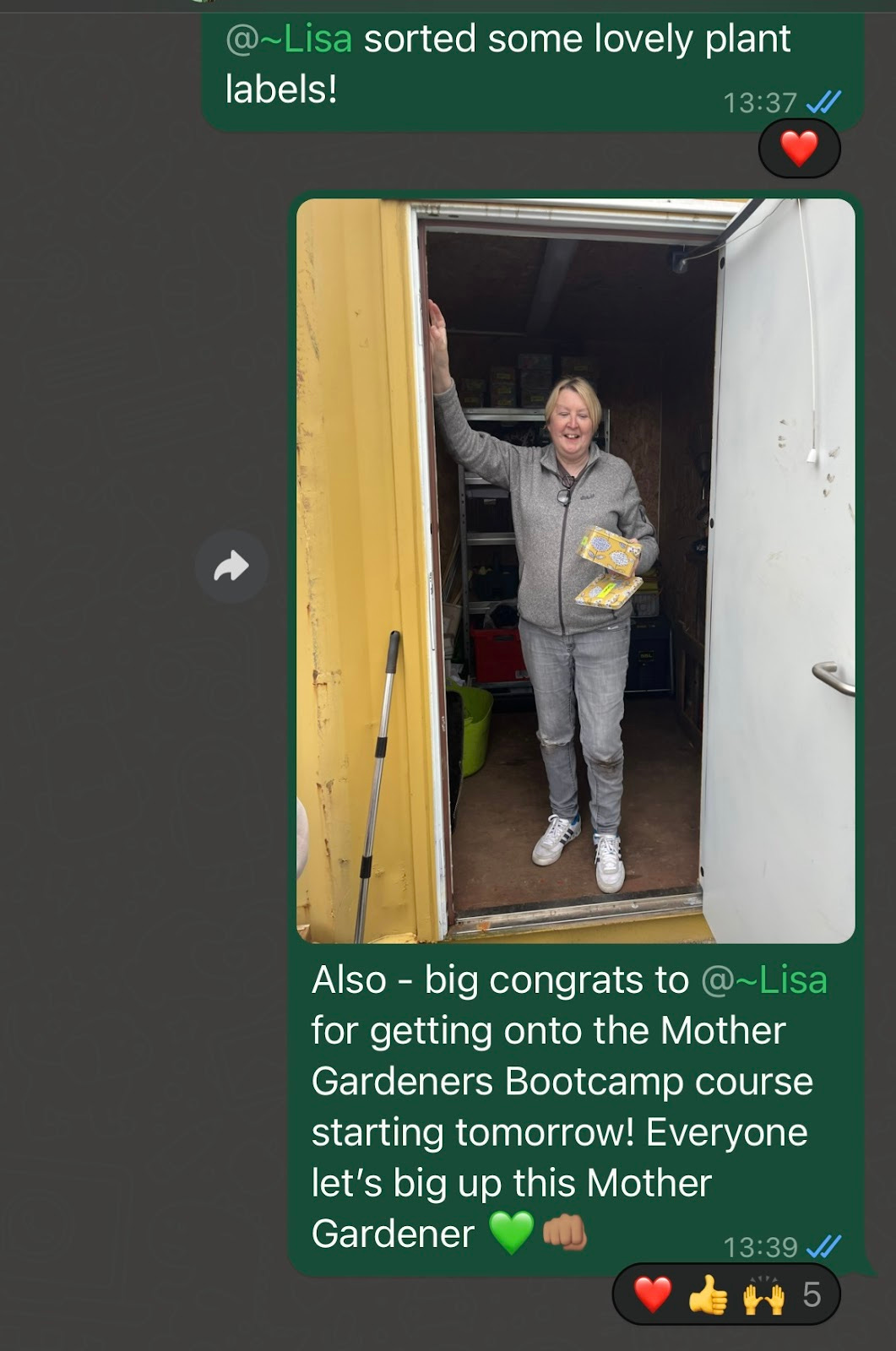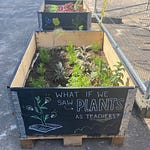Last year this time, The Guardian ran a series called "The Heat or Eat Diaries: Dispatches from the Frontline of Britain's cost of living emergency.”1 Of course, it is not the case the people have only recently found themselves in the precarious position of choosing between "eating or heating," but last winter made this reality visible in new ways. In fact, last year marked the highest cost of living crisis in 40 years. "Eating versus heating" was now happening inside the "perfect storm" of post-COVID aftermath, reduced employment options, and rising energy costs, and the Guardian article was trying to raise awareness that nearly 10% of the British population was struggling to stay warm or stay fed.
As we enter Week 4 of the Season of Creation, this week's theme is harvesting. With that Guardian article and my memory of last year's extremely bumpy transition into autumn/winter, I want to reconsider what happens around harvesting, both as a seasonal, agricultural practice and as an ongoing, social process.
A few questions that are coming up for me are:
How do we access and share food in ways in which money is not the only mediator of exchange?
What might a shift beyond food charity to food dignity look like in a time when more and more people are choosing between "eating versus heating"?
Is it possible to harvest more than one kind of yield when we grow and share food?
To explore the theme of harvesting and how we experience it, I would like to introduce you dear readers (and listeners) to a couple of food-based initiatives that respond to the cost of living crisis in creatively interruptive ways.
Incredible Surplus
Incredible Surplus is what you might call a surplus food rescue mission.2 Their strapline is “feeding bellies not bins” and their go-to hashtag is #sharingiscaring. They enact this primarily by collecting surplus food from supermarkets, wholesalers, and restaurants. They triage the food to make sure it is fit for human consumption and then distribute it at multiple sites across the city. The site that is the “mothership” and operation base for the project is an industrial warehouse, that has affectionately been dubbed, The Sharehouse.
[Photo: Ann and Ezra at the Sharehouse]
If you were to visit the Sharehouse on an open day, you would be forgiven for thinking ""Ah, this is a food bank." You would definitely see people accessing food who could not afford to pay in money. But you might also see a school teacher, a yoga instructor, or a local business owner. In other words, in the mix you would see a whole range of people who would probably not be eligible to get food from a food bank. Ann Gallagher, the managing director of Incredible Surplus and a neighbourhood character that I introduced last week, is quick to say and to repeat in her best schoolteacher voice:
"Incredible Surplus is not food bank, people. Everyone has to eat, and everyone is welcome."
The way that Incredible Surplus strives to be "for everyone" brings us to what I consider to be Incredible Surplus's unique selling point. They operate on a PAYF basis, which stands for Pay-As-You-Feel. Instead of operating like either a food bank (which gives the food away for "free") or a supermarket (which charges a fixed price), Pay-As-You-Feel offers a third way between the food bank and supermarket by facilitating exchanges around food that are bi-directional and relational. It enacts the "sharing is caring” principle by inviting the "customer” to answer the question: What can you donate or contribute as a response to receiving food?”
If you have dosh, (or cash for American listeners), then they will gladly accept your official currency as a donation towards operating costs.
If, however, you find yourself in a "time rich, cash poor” situation, they will gladly accept your time as a project volunteer as a way of keeping operating costs down.
Ann has this gentle, yet relentless way of getting you to do things that you didn't know you were up for doing. Through Ann's tenacious recruitment activity, I have experienced Pay-As-You-Feel as a customer and a volunteer. As a paying customer, I regularly shop at Incredible Surplus to support them and to keep my money flowing as circularly as possible in the neighbourhood. As a volunteer, I am a driver who does collections and as a composter-in-residence who returns to the soil the food discards that cannot be kept in the human chain.
Either way, my experience has been that Incredible Surplus is a kind of creative experiment with harvesting that runs on twin tracks. What makes it creatives is the way it simultaneously:
reduces food waste, while also
transforming from food a commodity that is merefly bought into an alternative or complementary form of currency that flow through the neighbourhood.
Both of those things make it one of those projects that is easy to get into, and hard to leave.
The Pantry (at Hodge Hill Church)
There is another food-based initiative that I would like to introduce. It is known nationally as a network called "Your Local Pantry."3 Whereas the Incredible Surplus model operates on a pay-as-you-feel basis, The Pantry is pay-as-you-shop. Members pay a weekly amount, usually £4-£5 per shop and receive somewhere between £20-£30 in retail value. This model of setting up a kind of community shop that is neither a food bank nor a conventional supermarket aligns with The Pantry's three core values of dignity, choice, and hope.
Dignity is about everyone having access to food and a shared culture of welcome and respect.
Choice is about recognizing that food is never just about food, because food is also a primary expression of identity, culture, and a way of sharing what we love. The Pantry is set up so that people can shop in ways that respect their food restrictions and their food cultures.
Hope is about the way that The Pantry creates some financial “wiggle-room" for members to start leaning into the better future they seek by slashing their weekly shopping bill. (The average savings per member is £21 per week which comes to over £1000 per year, some of which could go to those heating bills). That said, hope is not just about saving money. It is also about the way Pantry creates a social platform for connection and meaningful activity in a way relatives money as the sole or primary way to meet our basic needs and longings.
Like pay-as-you-feel, pay-as-you-shop ends up being an “added-value” experience in which customers can also become contributors, and everyone gets more than just what they paid for.
To create the social platform and ecosystem around a community food shop, every Pantry is hosted by a local organisation and members join according to postcode to keep things local. The local Pantry that I am most familiar with happens every Thursday morning from 10-12 at Hodge Hill Church, and it is hosted in partnership with the Open Door Community Foundation. This particular Pantry is nested inside a Place of Welcome,4 a weekly drop-in space for anyone to feel welcome and connected. If you walked in for the first time, you would not necessarily know who is a customer there to shop or as a punter there to have a cuppa. This is because at The Pantry, people are accessing and sharing more than food. In terms of staff, there are meeters and greeters, and alongside this welcome team, there are staff known as community guides or connectors who are available to 'hold the space' with friendly vibes or to lead pop-up activities.
One of those regular 'set pieces' of activity that has co-evolved with The Pantry is the gardening around the Mother Garden nested in the church yard. Mother Gardens (as I have mentioned before) exist to create other gardens by sharing seeds, seedlings, soil and skills. At this Mother Garden, many of the regulars wrap the weekly gardening session around their shopping at the Pantry.
(Photo:: Team Vibes in the Mother Garden on an unusually sunny day)
In fact, two of the "usual suspects" at the Pantry/Mother Garden are Lisa and Jo. They have both gone on to do the Mother Garden Bootcamp Training as a a way of spreading the harvest of what gets shared in the garden and the Pantry.
(Photo: Celebrating the Pantry/Mother Garden-to-Bootcamp Pipeline)
As a 'green connector,' who has been in this space for the last two years, I have heard the same testimony many times:
"I came for the shopping, and I stayed for the gardening." 💚
Which brings us back to a commonality that The Pantry shares with Incredible Surplus, as a local project that is easy to get into, and hard to leave.
As I reflect on my experience of being including at Incredible Surplus and The Pantry, I notice other patterns that they share in common (i.e., creative ways of harvesting):
Both are inclusive and for everyone in the locality, not just one 'target group’ or demographic.
Both create experiences that allow participants to access food AND to reconnect with the whole grow cycle of planting, tending, harvesting and returning (or composting). The Pantry does this through the Mother Garden and Soil Site adjacent to Hodge Hill Church; Incredible Surplus does this through a network of community composting and grow sites called Incredible Allotments.
While both projects include those from multiple faith traditions as well as those of no particular faith tradition, these experiments also manifest some of the deepest wisdom in the Christian tradition around social and ecological care. What comes to mind, in particular, are is that that both projects are creative improvisations on the biblical practice of gleaning (Levitucus 19:9-10) as well as sabbath legislations in the Torah — all of which are designed to create a shared anti-scarcity culture around harvest in which "whoever gathered did not have too much, nor too little” (See Exodus 16:18; 2 Co.r 5:18).
To loop back to where I begin the post, I would add that both offer creative and convivial interruptions to the precarities of the cost of living crisis. The hard truth that these projects have enabled me to recognise is that the cost of living crisis goes much deeper and wider than “eating vs heating.” What runs through the overlapping financial, social and ecological emergencies that we face is the thread of isolation, or sense of disconnection. Unlike the COVID pandemic, there is no vaccine or pull-of-the-shelf remedy for lack of connection. And yet, every generous act of harvesting, sharing, and encountering the neighbour around food can become a creative interruption and site of mending within a broken global food system.
Every one of these acts and initiatives like Incredible Surplus and The Pantry offer multiple harvests of food, connection and imagination. These, in turn, can generate what Nancy Bedford calls "little moves against destructiveness"5 that make possible the "bigger moves” of solidarity, structural shifts, and public transformation that we long to share.
We know from the proverb and from experience the truth of the saying: we reap what we sow. And yet, I wonder . . . The more that I observe the patterns woven into creation and spend time with projects like Incredible Surplus and The Pantry, I wonder if it can also be true that if we hope and act with creation instead of against her, that we can end up reaping a shared harvest that is somehow more than we can ask or imagine . . .
In the spirit of sharing harvest together, I have a couple digital gifts to share:
The first is a shout-out to
and his reflections on the practice of Gratitude Feasts which happen on their farm. You can check out his writings at .The second is a little impromptu video we did as an episode in our "Getting Green at the Pantry Series.” It is about "friendly fertilizers” and a way that we perceive abundance in the garden's harvest even through we thought were “weeds.”
*Lastly, I am also curious about what kind of experiments in creative harvesting you see or share in where you live.
In the comments section, please share what you see and what inspires you about what's happening in your patch.
May this autumnal season bring you an experience of harvesting that is a creative interruption. May food, connection and imagination grow abundantly in the garden of your life.
https://www.theguardian.com/commentisfree/series/the-heat-or-eat-diaries
https://incrediblesurplus.org/
https://www.yourlocalpantry.co.uk/join-a-pantry/
https://www.placesofwelcome.org.uk/about
Bedford, Nancy E. “Little Moves: Theology and the Practice of Discernemt.” In Practicing Theology: Beliefs and Practices in Christian Liofe, edited by Dorothy C. Bass and Miroslav Volf, 157-184. Grand Rapids: Eerdmans, 2001. (Originally quotes in Jennifer Ayres' book, entitled Good Food: Grounded Practical Theology, p 159.)











Share this post